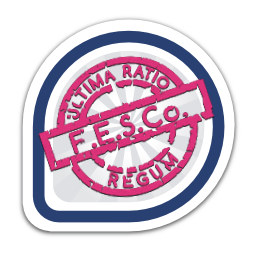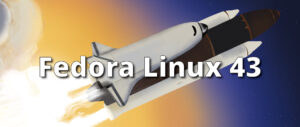This is a part of FESCo Elections interviews series.
Voting is open to all Fedora contributors. The elections started on January 26th and closes promptly at 23:59 UTC on February 3rd.
Please read the responses from candidates and make your choices carefully.
Feel free to ask questions of the candidates here or elsewhere!
Interview with David King (amigadave)
What is your background in Fedora? What have you worked on and what are you doing now?
I work for Red Hat on Fedora Workstation, and maintain several packages in Fedora, as well as several MinGW packages in my spare time.
Do you think Fedora should be time based or more feature driven distribution? Or compromise?
Fedora is already a compromise of time- and feature-based releasing, with the regular slippage around scheduled releases. It would be nice if the slippage was less common, but with so many people and moving parts, it is a challenge.
What are the most pressing issues facing Fedora today (from engineering POV)? What should we do about them?
The product split which happened recently is still in progress, and each product will likely test the limits of what level of differentiation is possible.
Care to share a screenshot of your Fedora desktop?
There are some good screenshots of GNOME on http://www.gnome.org/
What are your interests and experience outside of Fedora? What of those things will help you in this role?
I contribute to GNOME, maintaining several modules including Cheese and Logs. I also maintain EasyTAG, as well as helping out in the GNOME documentation team. In terms of technical experience, I think that I have a broad enough experience to make useful contributions to FESCo.
How can FESCo do a better job communicating with the rest of the Fedora community, or do you feel that FESCo is already doing well here?
There is already the meetings, the minutes of those and the members are also active on IRC, so I think that FESCo does quite well already.
What can you accomplish as part of FESCo that you couldn’t accomplish as a contributor to Fedora without sitting on FESCo?
Voting at FESCo meetings on matters of interest to FESCo, which can broadly be summarised as “steering the technical direction of Fedora”.
What degree of leeway do you feel that the Working Groups should have to diverge from one another in establishing their own identity?
I think that the Working Groups have made some reasonable decisions on diverging configurations so far, such as for firewalld configuration in Workstation. If there is a question about a specific engineering
decision regarding divergence, that is something that FESCo could answer, if necessary.
How would you define the set of criteria for promoting a spin to a product? What about the reverse?
What makes a Fedora product was defined by the Fedora Board in 2014:
https://fedoraproject.org/
A spin would have to fulfil those criteria if it wanted to be promoted to a product (and stop fulfilling them for the reverse to happen).
With the advent of Fedora Council now, what do you see as the significance of FESCO in Fedora project?
FESCo was and is responsible for steering the technical direction of the project, which has not changed with the advent of the Fedora Council.
How “closely” do you, as a member of FESCO, follow the devel mailing list before voting on FESCO meetings? In other words, apart from your own technical qualifications, what is your typical process in arriving at decisions?
I am not a member of FESCo, but I am subscribed to devel, and read the mailing list. I would guess that it is fairly typical that FESCo members try to understand the topics on the meeting agenda by reading up on the topic beforehand, as well as discussing with the involved parties.





